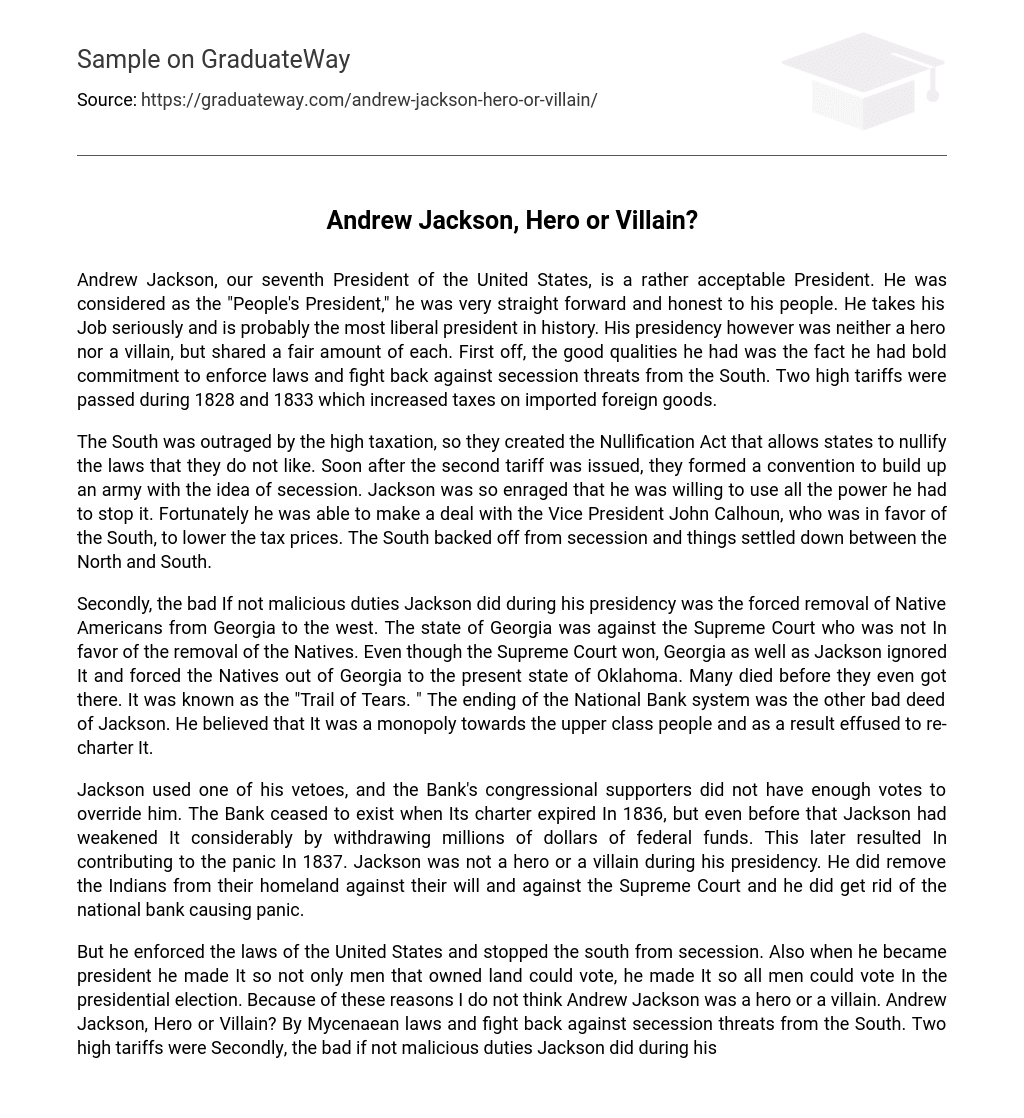Andrew Jackson, the seventh President of the United States, was renowned for his integrity and directness. Despite having his strengths and weaknesses during his presidency, Jackson is regarded as one of the most progressive presidents in history. He placed a strong emphasis on law enforcement and stood against threats of secession from the Southern states. Additionally, he enacted two significant tariffs in 1828 and 1833 to increase taxes on imported foreign goods.
The South responded with anger to the high taxation, leading them to pass the Nullification Act, which empowered states to reject unwanted laws. In response to the second tariff, they organized a convention and began assembling an army, with secession as their aim. This enraged Jackson, who was determined to use all his authority to quash the movement. However, a fortunate agreement was reached between Jackson and Vice President John Calhoun, a supporter of the South, resulting in a reduction of tax rates. Consequently, the South abandoned their secession plans and tensions between the North and South eased.
During his presidency, Jackson carried out several actions that were detrimental, if not malicious. One such action was the forced removal of Native Americans from Georgia to the west. Despite the Supreme Court’s opposition to this removal, both Georgia and Jackson disregarded it and forcibly relocated the Natives to present-day Oklahoma. The journey, known as the “Trail of Tears,” resulted in numerous deaths. In addition to this, Jackson’s termination of the National Bank system was another negative act. He viewed it as a monopoly benefiting only the upper class and therefore refused to re-charter it.
Jackson exercised one of his vetoes, rendering the Bank’s supporters in Congress unable to override his decision. When the Bank’s charter expired in 1836, it ceased to exist. However, even prior to its expiration, Jackson had significantly diminished the Bank’s power by withdrawing millions of dollars of federal funds. This ultimately played a role in the panic that occurred in 1837. Throughout his presidency, Jackson was neither solely revered nor reviled. He forcibly relocated Indigenous peoples from their native lands, defying both their wishes and the Supreme Court. Furthermore, he eliminated the national bank, leading to widespread panic.
Andrew Jackson, the seventh president of the United States, displayed a combination of heroism and villainy during his tenure. On one hand, he valiantly enforced the laws of the country and prevented secession attempts by the southern states. He also promoted democracy by extending voting rights to all men in presidential elections, rather than just landowners. However, his actions were not without controversy. He implemented high tariffs that were detrimental to the economy and showed hostility towards the Supreme Court’s opposition to his policies regarding the removal of Native Americans. Due to this mixed record, it is difficult to categorize Andrew Jackson as solely a hero or a villain.
Despite the fact that the Supreme Court achieved victory, both Georgia and Jackson disregarded it and firmly believed that it favored the wealthy. Consequently, they refused to renew its charter, with Jackson using his veto power against the Bank’s congressional when its charter ended in 1836. However, even before that, Jackson had weakened the Bank, which contributed to the panic of 1837. It is important to note that Jackson’s presidency cannot be simply categorized as heroic or villainous. He did expel the Indigenous peoples and prevented the southern states from seceding. Furthermore, he expanded voting rights beyond land-owning men to include all men when he assumed presidency.





